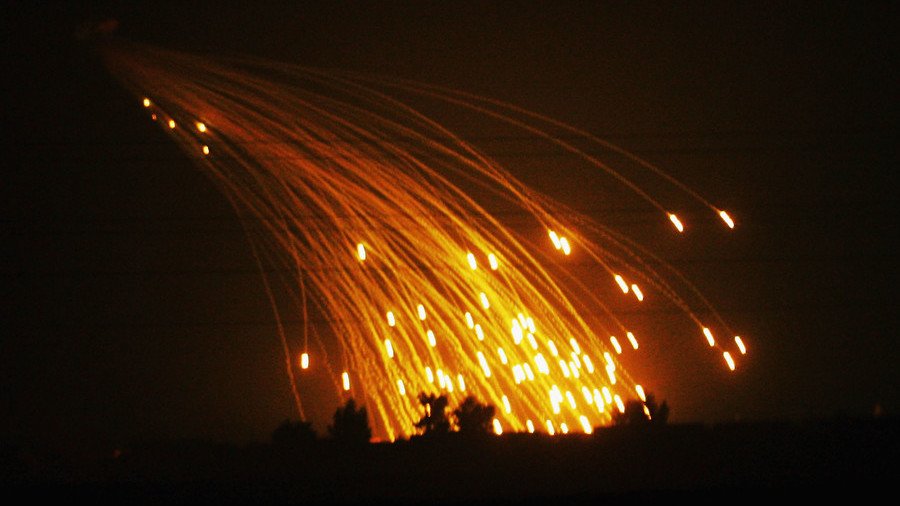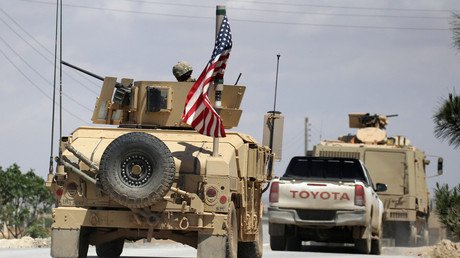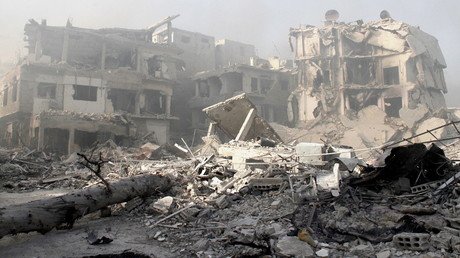US jets strike Syrian town with banned white phosphorus bombs – Russian Defense Ministry

Two US jets have bombed a town in the Syrian Deir Ez-Zor province with white phosphorus munitions, causing massive fires, Russian military has said.
Two F-15 jets on Saturday bombed the town of Hajin with white phosphorus incendiary munitions, banned under the Geneva Convention, according to the Russian Center for Reconciliation in Syria.
“Following the strikes, large fires were observed in the area,” Lieutenant-General Vladimir Savchenko said Sunday. There’s still no information on casualties caused by the bombing run, he added.
A Pentagon spokesperson denied the allegations of dropping white phosphorus bombs. “At this time, we have not received any reports of any use of white phosphorous,” Commander Sean Robertson told the media on Sunday. “None of the military units in the area are even equipped with white phosphorous munitions of any kind.”
The use of any incendiary munitions in populated civilian areas was banned by the 1980 Protocol III of the Convention on Certain Conventional Weapons. The US signed the protocol back in 2009.
White phosphorus, however, is also used for smoke screens and signals, which are not banned under the Convention. The loophole allows several nations, including the US, to keep the white-phosphorus based weapons in their arsenal.
The chemical burns when it comes into contact with oxygen, producing high-temperature heat and white smoke. Exposure to burning phosphorus causes deep burns, which are very hard to heal, while its fumes are highly toxic.
Russia’s accusations against the US come as tensions between the two countries soar in the region. The Russian Defense Ministry has repeatedly warned of a false-flag chemical attack being prepared by militant groups in Idlib, which it says will be used to justify a new US strike against the Syrian government. Moscow has also held massive naval drills in the Mediterranean Sea near Syria.
The US, in its turn, has also ramped up its military presence in the area, getting several ships equipped with cruise missiles closer to Syrian shores. President Donald Trump has meanwhile been “routinely” briefed by the Pentagon on the potential “military options” the US might take in case of chemical weapons attack.
Think your friends would be interested? Share this story!















